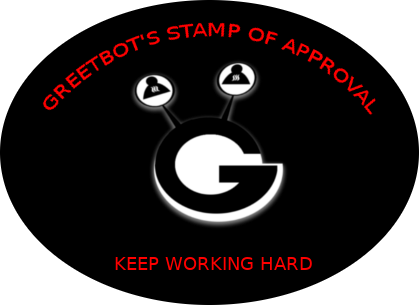A glimmer of hope for transgenders
Will the long years of wait-
ing to recognise the iden-
tity of transgender per-
sons nally end in this winter
session of Parliament with the
passing of the Transgender Per-
sons (Protection of Rights) Bill
2016?
The community has laid stress
on the point that for them, dignity,
respect, and access to health care
are nonnegotiable basic rights.
Selfidentication should be the
sole criterion for gender recogni-
tion legally without the need of
any other psychological, medical,
or “expert” intervention. Selfde-
clared identity should also form
the basis for access to social secur-
ity benets and entitlements. The
community maintains that the
basic principle of “nothing about
us, without us” must be applied
for all trans and hijra rights, health
and welfare activities.
The community has rejected
the setting up of district screening
committees to recognise transgen-
der persons as they say they are
not objects or people with a conta-
gious disease who need to be med-
ically screened. Their argument,
and rightly so, is that a medical as-
sessment violates their right to
selfidentication and gender au-
tonomy which are protected un-
der the right to life and personal li-
berty guaranteed by the
Constitution. Many do not want to
be labelled as transgender or third
gender but instead recognised le-
gally by their selfidentied gender
of “male” or “female”.
The Kochi Metro example
Will the Bill have provisions to pro-
tect them from discrimination?
The experience so far has been
that many who struggle to access
jobs are discriminated against,
forcing them to drop out.
For example, in May, when the
Kochi Metro Rail Limited formally
employed 23 transgender persons,
eight of them dropped out after
being unable to nd suitable ac-
commodation based on the
monthly wages they drew (bet-
ween 9,000 and 15,000). Many
households were unwilling to let
out their houses to them. They
faced other forms of discrimina-
tion too.
Therefore, an eective enforce-
ment mechanism is vital for the
adjudication of antidiscrimina-
tion claims brought forward by
transgender persons.
While in 2014, based on the
Census, ve million acknowledged
their transgender status, activists
say their number could be much
higher. Over 66% of them live in
the rural areas. The Census data
also highlighted the low literacy le-
vel in the community, just 46% in
comparison to the general popula-
tion’s 74%. In fact there should be
reservation to facilitate their ad-
mission to schools and appoint-
ment in public oces. In 2014, the
Supreme Court in National Legal
Services Authority v. Union of India
pointed out that reservation is one
of the timetested ways of enabling
historically disadvantaged popula-
tions to join the mainstream.
Stigma and discrimination
But accessing even the rights they
already have is not easy. For exam-
ple, even in an enlightened city
such as Mumbai, young transgen-
der persons seeking admission to
college approach the transgender
group leader, normally a person
with clout, who then meets the
college principal and, in most cas-
es, secures their admission. The-
reafter, the transgender person
has to be on “best behaviour” and
not stand out as that could com-
promise the admission.
Hopefully the Bill will provide
protection to transgender persons
from violence and stigma which is
a major factor. Often they are de-
nied passage in public spaces and
harmed or injured.
The hijra community, especially
those who are a part of the ‘guru-
chela’ structure in Hijra gharanas
and practise the traditions of
“mangti” and “badhai”, are often
harassed, detained under begging
prohibition laws, and forced into
begging homes.
In the case of transgender chil-
dren, their families, unable to ac-
cept their status, subject them to
domestic violence, which often
compels these children to leave
home.
Though several transgender
persons have made a mark in the
beauty and fashion industry,
joined the police force, the aca-
demic world and even the Indian
Navy, there is need for a compre-
hensive survey on the socioeco-
nomic status of the community.
Transgender welfare boards are
needed in dierent States. Trans-
gender persons should take part in
the national Census to generate ac-
curate data.
A grey area
Transgender identity is not yet re-
cognised in criminal law, whether
as the third gender or as a self-
identied male or female. There is
also no clarity on the application
of genderspecic laws to trans-
gender persons. Section 377 of the
Indian Penal Code is applicable to
transgender persons (i.e., those
who were male at birth). This
amounts to double persecution.
Finally, the community wants
mental health counselling support
and free gender transition surgery
facilities in government hospitals.
There are other issues that worry
transgender persons such as their
right to property, adoption, mar-
riage, pension, and care for the
old and the disabled. Some of
these issues may be resolved when
the Bill, taking note of their con-
cerns, is passed. The Bill could be
the rst big step towards equality
and their recognition in the
mainstream.
Resteemed by @resteembot! Good Luck!
The resteem was payed by @greetbot
Curious?
The @resteembot's introduction post
Get more from @resteembot with the #resteembotsentme initiative
Check out the great posts I already resteemed.
Thanks for shining a light on a really important topic. Equal rights seems like such a basic request, and yet here we are with several groups of people not having near the protections under the law that most of the rest of us take for granted.
Hi. I am @greetbot - a bot that uses AI to look for newbies who write good content.

I found your post and decided to help you get noticed.
I will pay a resteeming service to resteem your post,
and I'll give you my stamp of automatic approval!